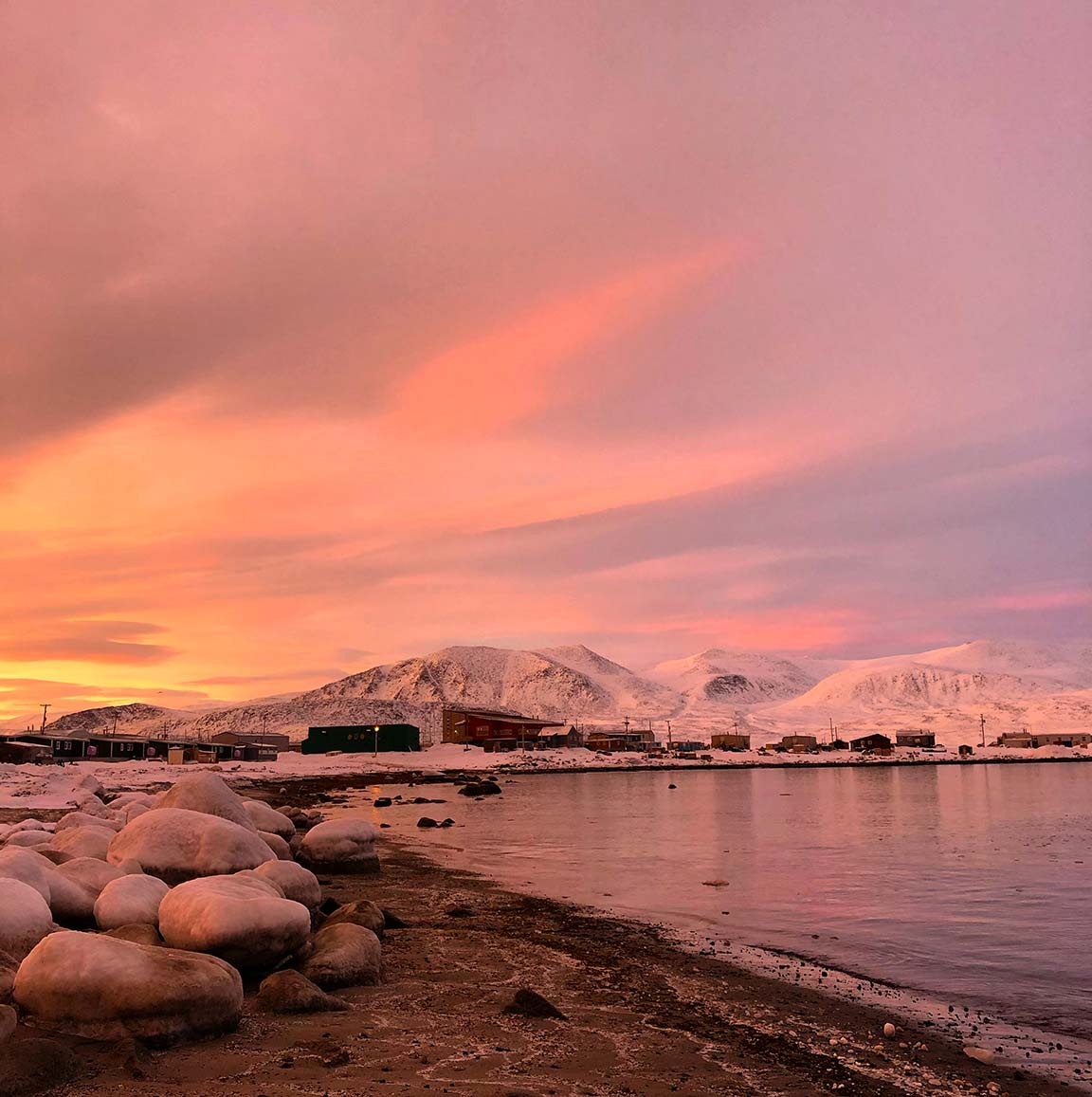LITTORAL CHAIR RESEARCH PROJECT
Food security and sustainable marine harvests in Qikiqtarjuaq
Co-developing innovative approaches with Indigenous partners to foster Coastal Resilience, Food Security and Sustainable Marine Harvests while engaging community capacity to proactively respond to marine risks

Context
The harvest, consumption, and sharing of marine species are fundamental to Inuit health, food security and cultural identity. Ongoing changes in Arctic marine environments (e.g. sea ice decline) lead to shifts in the distribution and abundance of culturally important species, with consequences for food availability and access. Still, the baseline mechanisms driving Arctic marine food webs, such as trophic interactions, are not well understood. Furthermore, the links between ecosystem status, species abundance, harvest and food security remain elusive, particularly when it comes to the complex dynamics of these relationships under broader socio-economic changes in the Arctic. In this context, collaborations between harvesters, community members, and researchers spanning diverse fields of inquiry (from oceanography to nutrition) are needed to advance knowledge of the impacts of Arctic change for marine ecosystems and food security, and to co-develop adaptation strategies with and for the Qikiqtarjuaq region.
Objectives
- Model the Arctic marine ecosystem to understand the effects of climate change on biomass and availability of species harvested by Inuit
- Bring together dietary, food security, and ecological information, while including Inuit knowledge, to understand potential future changes in Inuit food security, nutrition and health
- Examine temporal and generational changes in Inuit, and understand the potential role of climate change and changes in species abundance/access
- Work with Inuit partners in Qikiqtarjuaq to co-construct evidence-based (scientific, local, and traditional knowledge) adaptation strategies to promote food security and sustainable marine harvests, and to proactively respond to risks
Team members involved
Massicotte P (…), Lemire M (…),Babin M. (2020). Green Edge ice camp campaigns: understanding the processes controlling the under-ice Arctic phytoplankton spring bloom. Earth System Science Data (ESSD). 12: 151-76. DOI: 10.5194/essd-12-151-2020
